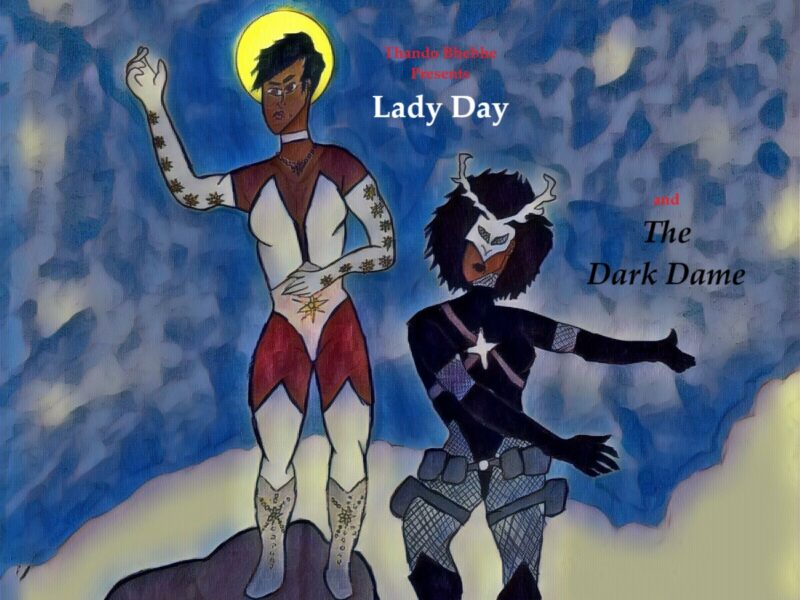I’ve never wanted to marry Mr. Darcy, or spend time with Jane Austen.
As an English major, this fact shames me. Austen has, after all, been compared to Shakespeare. Her novels entered the literary canon, via university courses, relatively easily. But more to the point, she’s considered almost required reading for women. To mimic that often parodied opening line of Pride and Prejudice, it is a truth universally acknowledged that a single woman, in possession of any sort of aspiration towards marriage, must devour Austen’s novels voraciously.
It seems, except me. When I discovered my final English course would be solely focused on the author whose senses and sensibilities I could not be persuaded to enjoy, I panicked. I whined to my mother over the phone. She assured me she also had found Austen’s work difficult. She also wasn’t completing what had been a mostly enjoyable degree with a visit to Northanger Abbey.
But myriads of readers, female and male, would be envious of such a position.
Statistics indicate the number of marriages is declining in Canada – 146,242 were recorded in 2004, over 10,000 less than the 157,395 reported in StatCan’s data for 2000. Still, people flock to these novels and their film adaptations. The stories, it would seem, revolve around women finding suitable marriage partners.
The husbands and wives may be decreasing, but the number of Janeites seems to be increasing. Besides becoming both an academic and popular cultural icon, Austen birthed her own society. The Jane Austen Society of North America (JASNA) was founded in 1979 in Manhattan. Of the three founders, only one was a woman. Now the society’s official website boasts over 4000 members, with regional groups in Canada and the United States.
On the surface, these groups’ existence makes perfect sense. People enjoy discussing good stories, and Austen wrote those. Even those without literary backgrounds can acknowledge this. James Reicker has a lifetime membership to JASNA, and has been a regional coordinator for the Ottawa chapter for 20 years.
His wife, who he says has enjoyed Austen since she was young, invited him.
“We had another friend, a friend who really liked Jane Austen, and they would always tease me. The two of them would gang up on me and say, ‘You gotta read Jane Austen. You really like Oscar Wilde you like this, you like that. You’ll really enjoy Jane Austen.’ And I kept saying, ‘No, no,’” Reicker remembers.
“My background is not in literature. I’m an accountant.”
Then one Christmas, while waiting for dinner, he saw a novel on the shelf and decided to give it a try. “I was hooked right from then on,” he says.
The Ottawa society began with annual dinners. Now, like several societies, they hold four meetings a year and discuss topics related to Austen’s novels and her lives. Of the approximately 40 members, he says most are older women. “The men are definitely in the minority.”
But he keeps returning to the books, for their characters, for their wit and humor. “It’s just so funny, you can hardly put it down,” he says.
But many do put the books down. While film adaptations help create interest in Austen and her books, Dr. Juliette Merritt, who taught my course believes they can’t fully capture Austen’s genius. While courtship plots form much of the novels, Merritt believes the stories address much larger concerns, although more subtly.
“Like all serious artists, she has something serious to say.” Merritt, and others, often cite Austen’s irony as one of her greatest literary traits. But her genius is elusive – she criticizes her society quickly and subtly, and then moves on.
Perhaps it’s a testament to Austen’s skill that those joining, and help creating, the popular fascination with her weren’t always so enthralled.
Laurie Viera Rigler published her first novel, Confessions of a Jane Austen Addict, to rave reviews. The novel follows Courtney James, a twenty-first century single Los Angeles woman who wakes up to find herself living as Jane Mansfield, a single woman in England during Jane Austen’s time.
Courtney has used Austen’s novels to cope with failed relationships, and the time and body switch appears ideal at first. As Jane Mansfield, Courtney even gets to read first editions of Austen’s novels. The second novel, Rude Awakenings of a Jane Austen Addict, tells story of Jane Mansfield waking up as Courtney James. The novels have even inspired an Internet series, Sex and the Austen Girl, which contrasts the two women’s lives.
But Rigler admits she never read Austen in school. The film adaptations made her curious.
“I thought ‘What is it about this author that I never wanted to read?’ I’d sort of dismissed her in my head as being ‘too girly,’ believe it or not,” she confesses.
But she started with Sense and Sensibility and became hooked. At the time, she had no idea about the “Jane Austen universe,” as she calls it. Rigler now has a JASNA lifetime membership.
Although she finds the period details interesting – even taking English Country Dance lessons for research (“I took a lesson with my husband, and I thought ‘Wow! This really is kind of sexy.’”) – she thinks most of this interest comes from the films, and not the books. Life during Austen’s time was not as idyllic as Hollywood portrays. Rigler remembers her reaction to learning about hygienic conditions: “I thought, ‘Oh, and people were probably really dirty and smelly.’”
But people were also lovers and rivals, friends and enemies, just as they are today. Despite the changes occurring in her society, Austen focuses on dramas in drawing rooms and on country walks, the inner negotiations of relationships between men and women. Her characters have qualities that all people have, regardless of time and place. And the questions of marriage and vocation that her characters ask remain.
But the question remains why women, in a time where, at least in the West, have more opportunity than before remain drawn to her. But perhaps this view reduces her work. Austen didn’t just write about marriage, and marriage is not a trivial matter.
“I do think that we impose very romantic ideals on Jane Austen novels,” says Louise Yearwood who has been the Toronto JASNA chapter coordinator for about a dozen years.
Although she remained single, even declining a marriage proposal, Austen’s heroines marry. But as Yearwood is quick to point out, “as a woman, there were no other options [in that society].” Regardless, Yearwood believes Austen’s heroines have merit for women today.
“I think they’re very strong characters who are thoughtful and intelligent and try to understand the people around them.”
In some ways then, Austen’s heroines could be seen as women of past, present, and future. Heather Vogel Frederick, author of the award-winning Mother-Daughter Book Club series for young girls sees them as “They’re witty, they’re smart, they’re sensitive, they’re compassionate, they’re as courageous as they can be given the structures of their time. They’re, in some ways, thoroughly modern women.”
The most recent novel in the series, Pies and Prejudice, follows the lives of five girls as they begin high school and read the romance of Elizabeth and Darcy with their mothers. Frederick hopes her novels encourage her readers to read “the books that every girl should have as her mental wallpaper.” Pride and Prejudice works, not just because of how “light and bright and sparkly” the story is, but also because the characters are facing the same trials all women do.
And, as Rigler points out, while Jane Austen may be shocked by changing attitudes towards sexuality, and how it’s expressed, she would more than likely be thrilled by how women can now write novels, and that can be seen as a respectable position.
I majored in English because as a little girl, I wanted to write novels. But as my degree ends, the world seems more exciting and more frightening than it did when I tried writing novels twelve years ago. Because it is also a truth universally acknowledged that women and their writing has not always been held in such esteem, regardless of cultural changes. But I can try now, and maybe I owe this article to Jane Austen. And now, with my seminar on Mansfield Park and essay on Willoughby complete, perhaps I’ll give all her books a second glance. Perhaps, I’ll come to learn about myself.
So maybe I’m more like Elizabeth Bennet than I thought.



